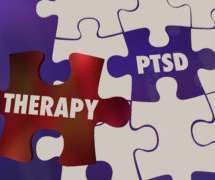How do we know when posttraumatic stress disorder is getting better?
Society of Clinical Psychology
JULY 13, 2020
Posttraumatic stress disorder (PTSD) causes a great deal of mental and physical distress, and can significantly reduce a person’s quality of life. Studies that report on the effectiveness of PTSD treatment are difficult to compare, because there are differences in terms of what is considered to be a response to treatment (i.e.











Let's personalize your content